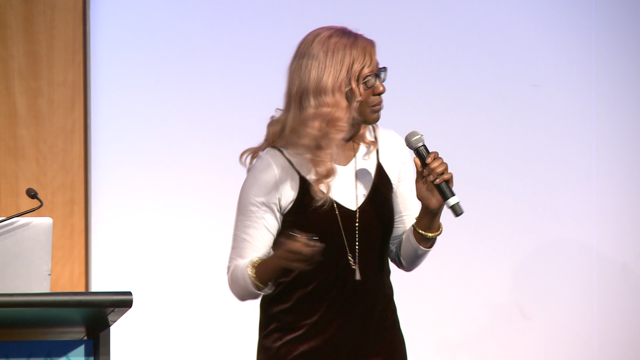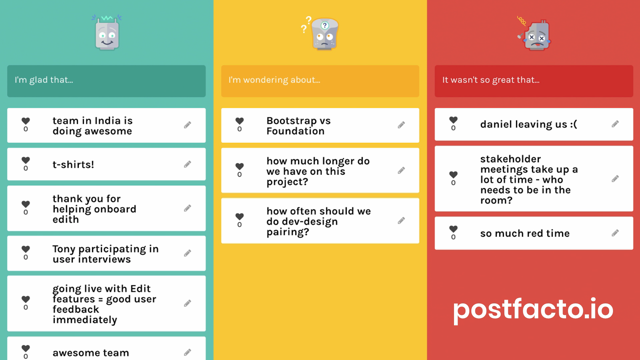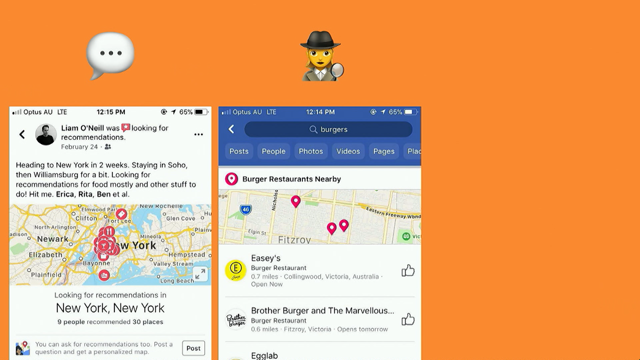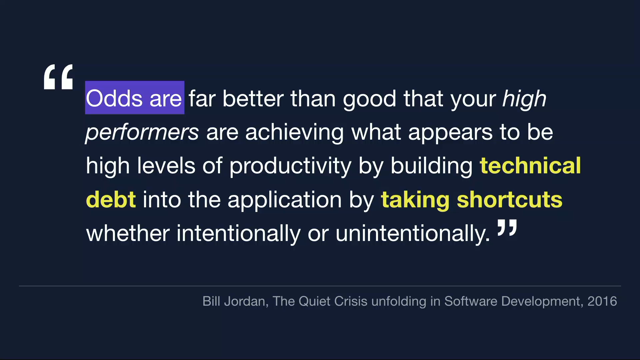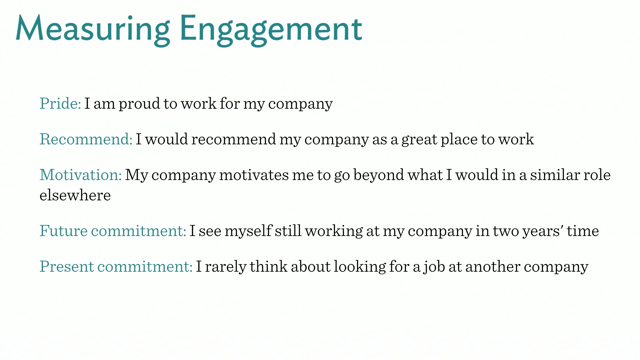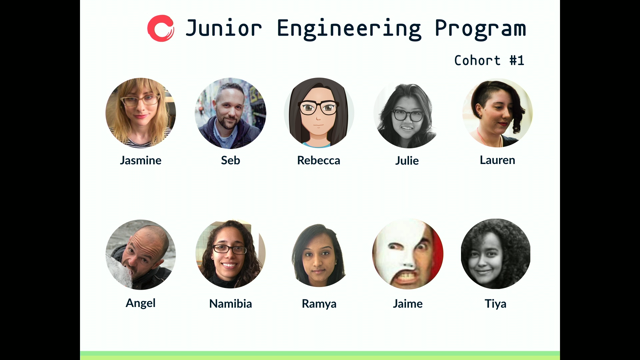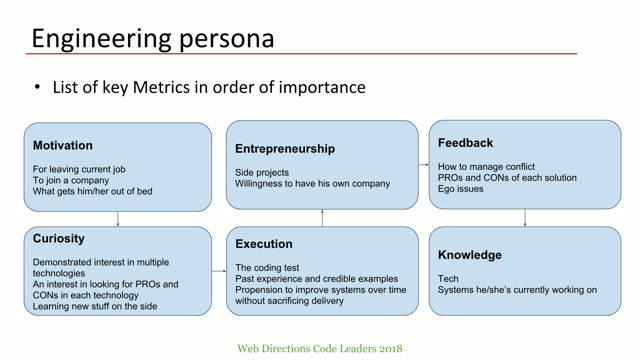Scaling and trying not to break things…too much

(cheerful electronic music) - All right thank you Jamie, well hello everyone I'm Jen, who here is familiar with SafetyCulture? Ah nice that's a lot more than I expected.
So given that I've got the post lunch time time slot, I'm gonna do a quick activity to teach you a little bit more about safety culture, but also warm up those arms and limbs, are we all ready? (laughs) Excellent.
So when you respond if you wanna respond to the first answer, one hand. Second answer, two hands.
Shall we test? If you wanna respond to the first answer what do you do? One hand, this is fun.
Second answer, two hands, nice.
All right so what does the number five stand for? Is this the number of times we've multiplied our head count since 2017 or is the number of employees when I started? Oh nice we've got a good mix.
So the first answer is actually correct, so well done. In 2017 I actually started mid year but at the start of the year we had around 50 employees and now we're just pushing over 30.
So it's been some pretty incredible growth over that period and I've got lots of lessons, some of which I'm hoping to share with you today. What about this one? Is this hundreds of mistakes along the way one hand or hundreds of dollars in the bank two hands? Good another mix well this one was actually a trick, both of them are true so hundreds if not thousands of mistakes along the way, but that's kind of half the fun and how we've actually got to where we are today. We've been also very fortunate to have three rounds of VC funding along the way which does take our total valuation to 440 million, which is pretty crazy for an Australian tech startup that actually came from Townsville, but we're just getting started.
Lucky last oh no, perfect.
This number is this the number of days that I've been at SafetyCulture hands up one hand for first answer or the total head count that we had today? Now this is actually a test because Jamie told you our total head count today in his initial intro and I'm just testing how much you're listening to me and Jamie already which is not looking good for a lot of you. (laughs) We've actually got just over 300 people and I've been at SafetyCulture for almost two and a half years, I'm not gonna tell you my exact start date because the engineers in the room will probably tell me that I've actually got the number wrong but it's been around two and half years, lots of lessons, lots of fun and some of which I'm gonna share with you today.
So a couple of key things.
First one we're just gonna go through some of the things that we've learnt, some of the things that we've done and then finally what are some of those things that you can borrow along the way as well? Tip one, build for your company not someone else's. So this sounds really simple but it's really quite easy to think that you see someone else doing something really cool and you can just lift and shift that for your company.
We learnt really quickly that we weren't going to be able to do that particularly because we're Australian founded company, came from Townsville more than 50% of our workforce are millennials, five different locations around the world and our very own unique set of values too.
So I don't wanna dwell too much on this tip, it's really important I wanna actually jump to some of the practical stuff that we've done, but build for your customers which are your employees and your company otherwise you're gonna have a really bad time. This is one of my favourite slides that I've ever made I think. (laughs) Tip number two one of your first people problems is always gonna be managing performance.
Now this is not something that's static that you can the bad new is it's not static and you can't just fix it once and then it will be done for the rest of time, particularly when you're scaling fast at something that's constantly evolving.
Good news here is we've found one thing that's actually been fairly consistent as we've grown that's worked really well and it's getting feedback right, but what I actually wanna talk to you about is some of the pain points the we've had with feedback along the way and hopefully some of the lessons you can take away too.
So there's two key things that have actually we found as pain points around feedback.
The first one is it's in people's head and the second one are triangle conversations. So if I start with feedback in people's head. So how does someone actually know how to improve if you don't tell them what they need to do to improve or give them that feedback and chance? So one of the things we actually did to help fix this and it's really interesting that a lot of people have been talking about documenting and actually getting clarity on things this very much aligned with that, but we asked or got people to actually ask for feedback. This one here, must ask for feedback, so how do actually encourage people to do that? A really good way to actually do that is be really specific.
So particularly like a presentation like today, what I should have done I have a colleague Chantelle who's actually here in the audience she's over there and hates being called out in public so that's Chantelle is actually ask her to give me one specific piece of feedback on things that I can actually improve whilst delivering this presentation.
If you're specific and really concrete in what you're asking for it's really hard for people to get out of giving you that feedback and it's the only way that you can improve. Who here is familiar with triangle conversations? Hands up if you are.
Ah cool for those that aren't, a triangle conversation is if one person comes and talks to you about another person and then you create this horrible poisonous triangle talking behind people's backs.
Triangle conversations are death in a scaling startup and it's something that you need to crush immediately. One of my favourite things to actually say to people when they start having triangle conversations is so what did that person tell you when you said that to them? And it's this moment of tripping over the truth where they actually realise that they shoulda been having that conversation with someone else and not with you. At this point is where I actually introduce that I'm a massive business book nerd and I'm gonna share some of the books that I've read along the way that's informed some of this.
This one by Rachael Robertson, she's actually an Antarctica expedition leader and has some really good tips about extreme or leading extreme circumstances which I like to think is kind of like leading in a high growth environment and then this one here is the "Trillion Dollar Coach." It's about Bill Campbell one of he most amazing Silicon Valley coaches, very much on like radical candour, caring personally and telling people as it is, a great read. My next tip is if you don't wanna share it, is it really fair? And this one's become really topical for us particularly around compensation and I was talking to Emma our good friend from ThoughtWorks before around compensation and I don't think anyone's actually talked about compensation and made it interesting.
So I'm gonna give it a shot and see how we go. Who here in this audience can hand on heart tell me that they could come up here and explain how decisions around comp are made in their company? And you also can't be in an HR team, so you're out Emma. (laughs) Look around no one.
Oh well we've got a couple, I know you're in engineering, well done go prosper. (laughs) So that's awesome what we found when we asked a lot of people was no one had any idea how these decisions were made and so what that actually leads to is unconscious bias becomes present, unfairness, a lack of transparency, and people almost assume things are happening even when they're not.
So one of the things that we did to kind of tackle this was we came up with a compensation, oh this is also to reiterate that again it's just in people's heads as a common theme here, is we came up with a compensation philosophy. Sounds really boring and the whole point here was it forced us to get really clear on what our whole philosophy was, how we thought about it, how we made decisions, the why behind it all, and then we shared it and started with our engineering team to get the feedback from our harshest critics so that we could answer all those questions and then scale it across the business.
Now my point here is not to say that you should all go and create comp philosophies do what you want, borrow what you want, but the key thing here is to actually work out what comp and decisions around that look like for you and how much you wanna share, document it and then share it with all your team members. If you're looking for inspiration there's a really good book I recently read called "Brave New Work." There's a whole chapter on compensation, a big part around transparency and just being fair. So there's some really good ideas in there to get you to start thinking about that as well. Final point here you need to be thinking about your future team all the time and so this one for me is really quite pertinent because when you're scaling really quickly, so does your team and high performance is fleeting and it's this really humbling experience that at one point you can feel like you have a high performing team and then the next minute you don't.
I could sit here and tell you that the nine box talent matrix and things like that, we've got rid of that it's more action oriented, but really there's just two things that I like to think about in this space.
First one I call the bus theory and I have a cute bus icon, here we go.
So what does the bus theory mean? As a leader in the team if you were to get hit by a bus tomorrow as morbid as that is who would be that person that would actually step into that role? Are you building that capability internally or are you fostering external network to actually pull in to fill that capability gap? Do you know where to look if someone in your team was to leave? Is there a single point of failure? Something that you should be as a leader thinking about pretty much every day.
The second one I like to call mind the gap and this one's around capability gaps.
What are those capability gaps you have in your team now? What do you foresee in the next six months that's gonna be a capability gap? 'Cause that's gonna come really really soon, much sooner than you can ever imagine.
So most of you have probably read some of these books, but Kim Scott "Radical Candour" is an awesome read. There's a really interesting part around talent mapping in there that she takes a different approach that I really like and also Patty McCord's "Powerful" has a really interesting idea in there around thinking about your six month ahead team and if your current team is actually gonna be able to grow at the same pace as your business.
So I like to keep my talks short and sweet and then if you do have any questions I'm always around or we love having visitors at SafetyCulture but I want you to think about what's that one thing that you gonna do differently? What's that one action that you gonna take? Whether it's based on something I've said, Mahesh, Emma, any of the different speakers today, and I want you to write it down because if you actually write something down you're 47% more likely to do it so it would be rude not to give yourself that head start. So that's all from me, thanks again and happy scaling.
